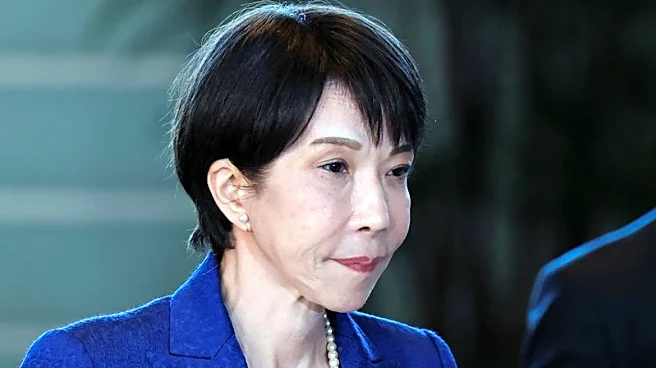What's Happening?
Cadwalader, Wickersham & Taft, the oldest law firm in New York, is experiencing a significant period of upheaval. The firm has lost nearly three dozen partners this year, a situation exacerbated by its controversial agreement to provide free legal services to President Trump. This exodus of partners is raising questions about the firm's ability to adapt to the evolving demands of the legal industry. The firm recently appointed a new managing co-partner, signaling a potential shift in strategy as it navigates these challenges. Bloomberg Law reporter Justin Henry suggests that Cadwalader's specialization may be a hindrance in the current full-service legal market, and the firm is exploring ways to revitalize its operations without resorting to a merger.
Why It's Important?
The departure of key partners from Cadwalader, Wickersham & Taft highlights the pressures facing traditional law firms in a rapidly changing legal landscape. The firm's challenges underscore the broader industry trend where specialization may no longer suffice in a market increasingly dominated by full-service firms. This situation could impact the firm's reputation and client relationships, potentially affecting its financial stability. The legal community and clients are closely watching how Cadwalader will address these issues, as its strategies could set a precedent for other firms facing similar challenges. The firm's ability to retain talent and adapt its business model will be crucial in maintaining its status and competitiveness.
What's Next?
Cadwalader, Wickersham & Taft is likely to focus on strategic realignment to address its current challenges. The appointment of a new managing co-partner suggests an internal shift aimed at stabilizing the firm. Potential strategies may include diversifying practice areas, enhancing client services, and possibly restructuring to better compete with full-service firms. The firm's leadership will need to engage with remaining partners and clients to rebuild trust and confidence. Industry observers will be keen to see if Cadwalader can innovate and adapt without losing its historical identity, which could influence similar firms facing market pressures.










